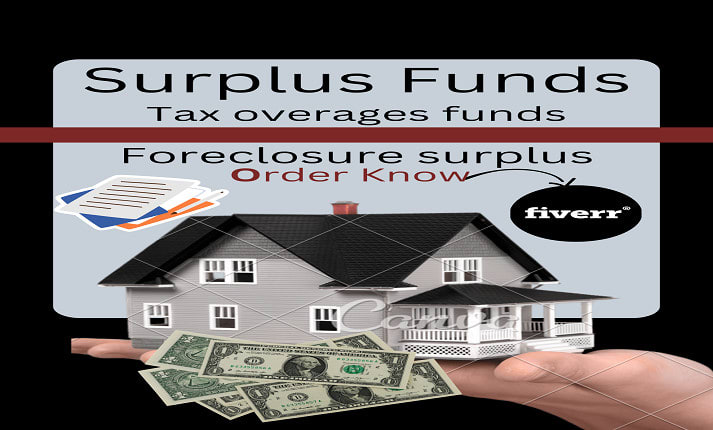All Categories
Featured
Table of Contents
Mobile homes are considered to be personal effects for the objectives of this section unless the proprietor has actually de-titled the mobile home according to Area 56-19-510. (d) The property should be marketed available for sale at public auction. The advertisement has to be in a paper of general circulation within the region or district, if applicable, and should be entitled "Overdue Tax Sale".
The marketing needs to be published as soon as a week before the lawful sales day for 3 consecutive weeks for the sale of real residential or commercial property, and two consecutive weeks for the sale of personal residential or commercial property. All expenses of the levy, seizure, and sale must be added and gathered as extra expenses, and must consist of, however not be restricted to, the costs of taking belongings of actual or individual residential property, advertising and marketing, storage space, identifying the limits of the residential or commercial property, and mailing licensed notifications.
In those cases, the officer may partition the property and provide a legal summary of it. (e) As a choice, upon authorization by the county controling body, a region may make use of the treatments offered in Phase 56, Title 12 and Area 12-4-580 as the first step in the collection of delinquent tax obligations on real and individual residential or commercial property.
Result of Change 2015 Act No. 87, Area 55, in (c), substituted "has actually de-titled the mobile home according to Section 56-19-510" for "gives written notice to the auditor of the mobile home's addition to the land on which it is situated"; and in (e), inserted "and Section 12-4-580" - overages education. AREA 12-51-50
What Is The Most Effective Way To Learn About Training Resources?

The forfeited land compensation is not called for to bid on building known or fairly believed to be contaminated. If the contamination becomes known after the quote or while the payment holds the title, the title is voidable at the election of the commission. HISTORY: 1995 Act No. 90, Area 3; 1996 Act No.
Payment by successful prospective buyer; invoice; disposition of earnings. The successful prospective buyer at the overdue tax sale shall pay lawful tender as given in Section 12-51-50 to the person formally billed with the collection of overdue tax obligations in the sum total of the bid on the day of the sale. Upon settlement, the person officially billed with the collection of delinquent taxes will furnish the buyer an invoice for the acquisition money.

Expenditures of the sale need to be paid first and the balance of all delinquent tax obligation sale monies collected have to be committed the treasurer. Upon invoice of the funds, the treasurer will note immediately the general public tax records regarding the residential or commercial property marketed as complies with: Paid by tax obligation sale hung on (insert day).
How Do I Choose The Right Overages System Course?
166, Area 7; 2012 Act No. 186, Area 4, eff June 7, 2012. AREA 12-51-80. Negotiation by treasurer. The treasurer will make complete negotiation of tax obligation sale cash, within forty-five days after the sale, to the corresponding political class for which the taxes were levied. Profits of the sales in excess thereof need to be preserved by the treasurer as otherwise supplied by law.
166, Section 8; 2015 Act No. 87 (S. 379), Section 57, eff June 11, 2015. (A) The skipping taxpayer, any kind of grantee from the proprietor, or any home mortgage or judgment financial institution may within twelve months from the day of the delinquent tax sale retrieve each product of genuine estate by paying to the person formally billed with the collection of delinquent tax obligations, evaluations, fines, and expenses, together with interest as offered in subsection (B) of this section.
Who Has The Most Comprehensive Property Claims Training Program?
2020 Act No. 174, Sections 3. B., give as adheres to: "AREA 3. A. investor. Notwithstanding any kind of other stipulation of legislation, if real residential property was marketed at a delinquent tax obligation sale in 2019 and the twelve-month redemption duration has actually not run out as of the effective day of this section, then the redemption duration for the genuine building is prolonged for twelve extra months.
HISTORY: 1988 Act No. 647, Section 1; 1994 Act No. 506, Area 13. In order for the proprietor of or lienholder on the "mobile home" or "manufactured home" to retrieve his property as permitted in Area 12-51-95, the mobile or manufactured home topic to redemption have to not be gotten rid of from its area at the time of the delinquent tax sale for a duration of twelve months from the day of the sale unless the owner is required to move it by the individual various other than himself that has the land upon which the mobile or manufactured home is situated.
If the proprietor relocates the mobile or manufactured home in violation of this area, he is guilty of a violation and, upon conviction, should be punished by a fine not going beyond one thousand dollars or imprisonment not going beyond one year, or both (overage training) (wealth creation). In addition to the various other requirements and settlements necessary for a proprietor of a mobile or manufactured home to retrieve his property after an overdue tax obligation sale, the skipping taxpayer or lienholder also must pay rental fee to the purchaser at the time of redemption an amount not to go beyond one-twelfth of the taxes for the last completed home tax obligation year, aside from penalties, costs, and passion, for every month between the sale and redemption
For purposes of this rent computation, more than one-half of the days in any kind of month counts as a whole month. HISTORY: 1988 Act No. 647, Area 3; 1994 Act No. 506, Area 14. AREA 12-51-100. Termination of sale upon redemption; notification to buyer; refund of acquisition rate. Upon the actual estate being redeemed, the person officially billed with the collection of overdue taxes will terminate the sale in the tax sale publication and note thereon the amount paid, by whom and when.
What Are Bob Diamond's Tips For Effective Financial Training?
BACKGROUND: 1962 Code Area 65-2815.9; 1971 (57) 499; 1985 Act No. 166, Section 10; 1998 Act No. 285, Section 3. SECTION 12-51-110. Personal residential property shall not go through redemption; buyer's costs of sale and right of ownership. For personal effects, there is no redemption duration subsequent to the moment that the residential property is struck off to the successful purchaser at the delinquent tax sale.
BACKGROUND: 1962 Code Section 65-2815.10; 1971 (57) 499; 1985 Act No. 166, Area 11. Neither more than forty-five days neither much less than twenty days prior to the end of the redemption period for real estate offered for tax obligations, the individual officially billed with the collection of overdue tax obligations will send by mail a notification by "certified mail, return receipt requested-restricted shipment" as provided in Section 12-51-40( b) to the defaulting taxpayer and to a grantee, mortgagee, or lessee of the home of record in the proper public documents of the area.
Latest Posts
Delinquent Tax Office
Forfeited Properties
Investing Tax Liens